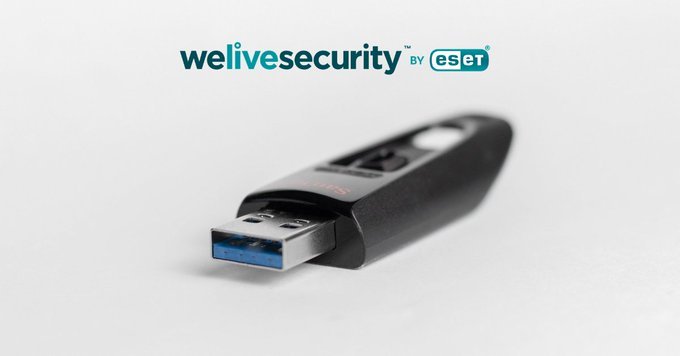From losing photos of important moments from our lives to losing priceless professional ones files, if you haven't kept backups the impact is huge.
Imagine losing the file you just prepared to hand over to your client or employer, or the file with the documents needed to apply for a grant or loan, or even your university job.

If this is not the case for you, imagine losing photos or videos of your childhood, important personal moments, or family members who have already left. Can you recreate these memories?
According to Amer Owaida, a member of the community of the international cybersecurity company ESET, if time went back, here's what you could do to prevent this from happening in the future.
First of all, do you know how your data can be lost?
There are many ways in which you could lose your valuable data. Some you can avoid, while others not so much.
It may, for example, be stolen from you device, ή μπορεί να ρίξετε κατά λάθος εσείς ή κάποιος από το περιβάλλον σας κάποιο υγρό επάνω στη συσκευή όπως νερό ή καφέ, ή ακόμα μπορεί να σας πέσει η συσκευή από μεγάλο ύψος. Κάτι τέτοιο θα μπορούσε να δημιουργήσει μηχανική βλάβη στη συσκευή σας. Και βεβαίως, δεν είναι ασυνήθιστο οι συσκευές να παρουσιάζουν δυσλειτουργίες είτε λόγω ηλικίας είτε λόγω κατασκευαστικού ελαττώματος που επηρεάζει ένα συγκεκριμένο εξάρτημα, όπως η υπερθέρμανση του σκληρού σας δίσκου.
A power outage is also something that can happen, which means that if you work on a desktop computer, you could lose the data you are working on in the blink of an eye. You should also consider the human error, which could lead to file deletions or trigger a chain of events that could even lead to the complete deletion of your device.
According to Amer Owaida, Security Writer at ESET, these are some unforeseen factors, but there are others that can be predicted, such as infecting your device with malware.
Depending on the malicious code, the data on your computer could either be completely deleted, destroyed or – if you happen to ransomware – they may be “locked” and you may be asked to pay a “ransom” to get them back.
All of this can be avoided if you use a complete security solution and if you apply cyber security best practices.
Did you keep backups? No; Here's what you can do to get your data back
If your data has been accidentally deleted:
• Stop using the device immediately, but do not switch it off.
• If it is currently powered by a battery, insert the device into the charger.
• disconnect from the network – if the device has “flight mode” or similar program enable it, then put the device into “sleep mode operation".
However, if liquid has been spilled on the device:
• turn it off immediately and
• try to dry it quickly with a soft dry cloth
• If an external media is connected, disconnect it and dry it as well
• Allow the appliance to dry completely for a few days.
• depending on the size of the damage you may need to consult a professional
Fortunately, even if one of these scenarios happens, there are ways you can try to recover your data.
If, again, your device is infected with ransomware:
• you may be able to find free decryptors tools created by security companies to deal with various programs
• you can also try to restore your data using various recovery tools developed specifically for this purpose
• these utilities can either come from your device manufacturer or have been developed by the component manufacturer, or alternatively, you can rely on third-party software that may involve specific operating systems or devices.
If you have exhausted all the options or you feel that you do not have enough knowledge, then you can call "the cavalry", ie a data recovery specialist.
However, consider it your last resort and it can cost you hundreds or even thousands of euros to restore your data.
It is also worth noting that if you try to do any recovery on your own without success, this can then reduce the chances of recovery by a professional.
Depending on the type of device and the type of fault, such services may be offered remotely connections to your device or you may be required to transport or send the device to the recovery service.
If you consider this option, contact the service as soon as possible, as its staff will be able to advise you on what is best to do with your device after a data loss event.
In conclusion
One thing is for sure: "prevention is better than cure". In this context, backing up your sensitive and important data at regular intervals so that you can always recover is preferable to recovering lost data, ESET Security Writer advises, adding:
"The best thing you can do is use many forms of storage, such as a reliable cloud solution, to have data whenever you need it, and offline physical storage devices, such as external drives. "It would be good to encrypt all your data before storing it anywhere, so that even if someone steals backups in the cloud or on your external drives, your data will remain protected."





